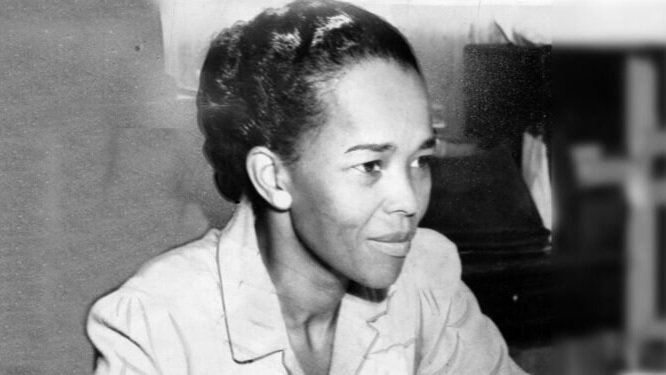By Ryan Makuch & Bilal Saeed
In the world of sport, we know all about the folks behind the scenes, the role players and the unsung heroes. On this Martin Luther King Day, we wanted to take some time and celebrate those comrades of Dr. King, who helped push for civil rights alongside him during the 1950s-60s, and in the decades that followed. In an attempt to help shine a light on activists who made huge strides for equality, we wanted to profile the peers of Dr. King who worked with him, whether that is in the Southern Christian Leadership Conference (SCLC), during one of his many large civil rights protests or movements, or those that served alongside him as a mentor, friend, or fellow activist. We hope that this can allow you to learn about those who strove for change alongside Dr. King.
Coretta Scott King
When talking about Dr. King’s “teammates”, we’d be remiss to start with anyone other than his wife. Scott is a crucial part to why we have MLK Day, as she worked to establish it as a national holiday, ultimately getting her wish in 1986. During much of King’s career, Scott balanced taking care of their four children along with activist work. Following the death of King, Scott took an even greater step into the world of activism and founded The King Center in 1969, which strives to serve as a living testament to King’s life and works. Scott also expanded her work past just working towards equality for Black people in the U.S. and began speaking out about other issues both in the U.S. and across the globe. She was an adamant protestor of the Vietnam War and a strong opponent to the South African apartheid regime. She also was devoted to pushing for LGBTQ+ rights, women’s rights, and world peace, and often sought to connect her various causes through intersectional means. Scott would pass in 2006 at the age of 78, having received accolades from not just various universities, but also the U.S. and Indian governments.
Ralph Abernathy
A Baptist minister, Abernathy first met Dr. King in 1954 while King was becoming a pastor at a local church. Abernathy would quickly become a mentor to King and while already a member of the Montgomery NAACP, his role as a public-facing civil rights activist would increase more during the Montgomery bus boycott. Abernathy was a member of the first executive board of the Southern Christian Leadership Conference (SCLC) where he served as Financial Secretary-Treasurer. Abernathy and King collaborated on several issues in the years that followed, and the two were involved in the success of several nonviolent movements while also getting jailed 17 times together for their roles in the movement. Abernathy introduced King ahead of his final public address, and was inside the motel room when King was shot and killed on the balcony. After King’s death, Abernathy would assume the role of President of the SCLC and continued worked for civil rights, including supporting striking sanitation workers in Memphis and hospital workers in Charleston and helping to negotiate a peace settlement at Wounded Knee. Abernathy passed away at the age of 64 in Atlanta; he was awarded over 300 awards, five honorary doctorate degrees, and now has a hall dedicated to him at Alabama State, his alma mater.
Dorothy Height
Height’s connection to Dr. King is by way of being one of the ‘Civil Rights Six’, however her services to the Civil Rights Movement often went unheralded by the press of her day due to sexism. Height was named President of the National Council of Negro Women (NCNW) in 1957 and under her the organization supported voter registration efforts in the South, funded activists all over the country, and helped organize Wednesdays in Mississippi – a program that, starting in 1964, saw weekly teams of northern women travel to Mississippi to reach out to those in the South with the goal to end segregation. In addition to her work with the NCNW, she also worked with the Young Women’s Christian Association for 40 years, dating from 1937 to 1977. Her advocacy in this realm led to improved conditions for Black workers and ultimately, she helped assist them on a national level with their integration policy. She was also a driving force behind the crafting of a statue to honor Mary McLeod Bethune in 1974, the first ever statue of a woman or an African-American on U.S. Federal land. Height passed away at the age of 98 in Washington D.C., but not before earning the Presidential Medal of Freedom and being called “the godmother of the civil rights movement” by then-President Barack Obama.
Ella Baker
Ms. Baker began joining social activist organizations in her twenties and had one of the longest, most impactful lives as a grassroots organizer and activist. She was a field secretary and director for the NAACP before co-founding the organization ‘In Friendship’ to raise money to fight against Jim Crow Laws in the deep South. Just a couple years later, she would move to Atlanta to join Dr. King’s SCLC. Dr. Barbara Ransby, author of Ella Baker and the Black Freedom Movement, describes how Ms. Baker was a key influencer in shaping the agenda and issues the SCLC would focus on. Dr. Ransby also notes that Ella Baker’s work can be seen in today’s movements, specifically her ideology around decentralized, grassroots leadership. One of Ms. Baker’s famous quotes sums it up well, “A strong people don’t need a strong leader.” Her ability to organize and lead gave her a strong and powerful voice which often created difficulties for Ms. Baker, even within the SCLC and with Dr. King. Many consider this a key factor in why she is remembered in the same light as some of the other civil rights leaders of her time. Even though she was never after spotlight and recognition, Ms. Baker should be remembered as one of the most influential activists of all time.
Bayard Rustin
Bayard Rustin co-organized the March on Washington Movement to help provide fair working opportunities for African-Americans and desegregate the armed forces. Growing up in a household with visits from NAACP leaders like W.E.B Du Bois was no stranger to activsim and was an organizer and activist for generations. Rustin spent time in the 50’s in Africa meeting with activists who were resisting the British colonial government there. He also stopped in London to meet with civil rights activists about how to encourage non violent independence movements among Britain’s African colonies. Rustin fought for worker’s rights, human rights, gay rights and was possibly the most influential voice for non-violence in the movement. As a close confidant of Ms. Baker, the two may have been the biggest influences on MLK behind the scenes. Rustin once said, “The glorious thing is that he came to a profoundly deep understanding of nonviolence through the struggle itself, and through reading and discussions which he had in the process of carrying on the protest.”

